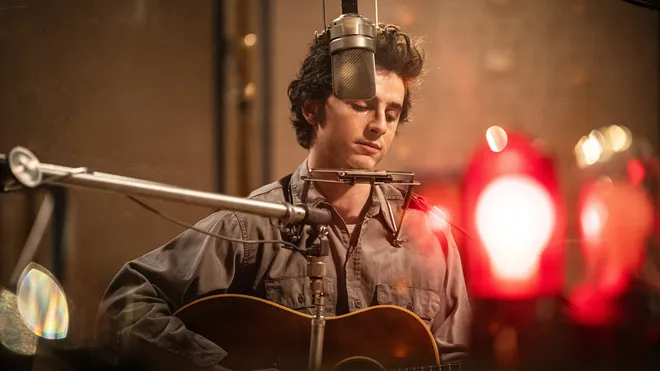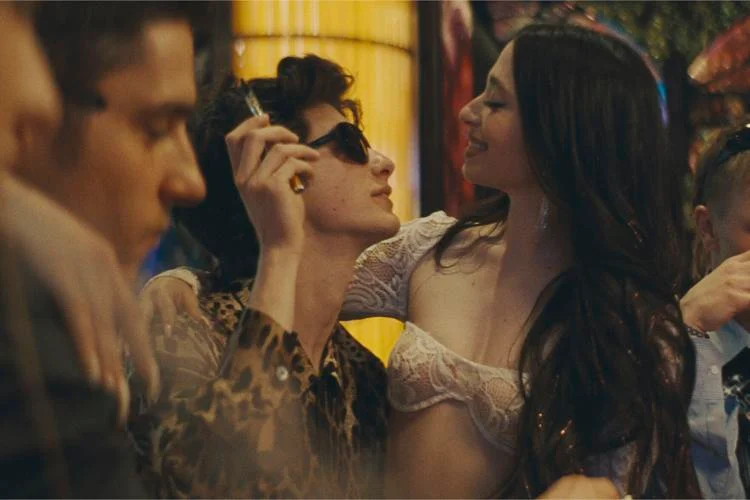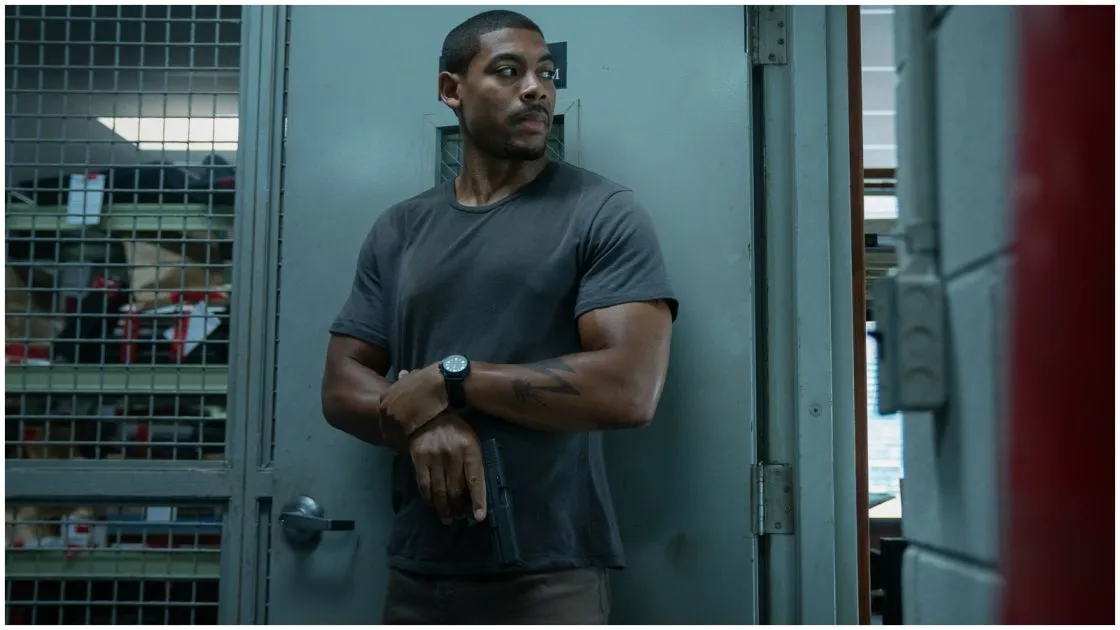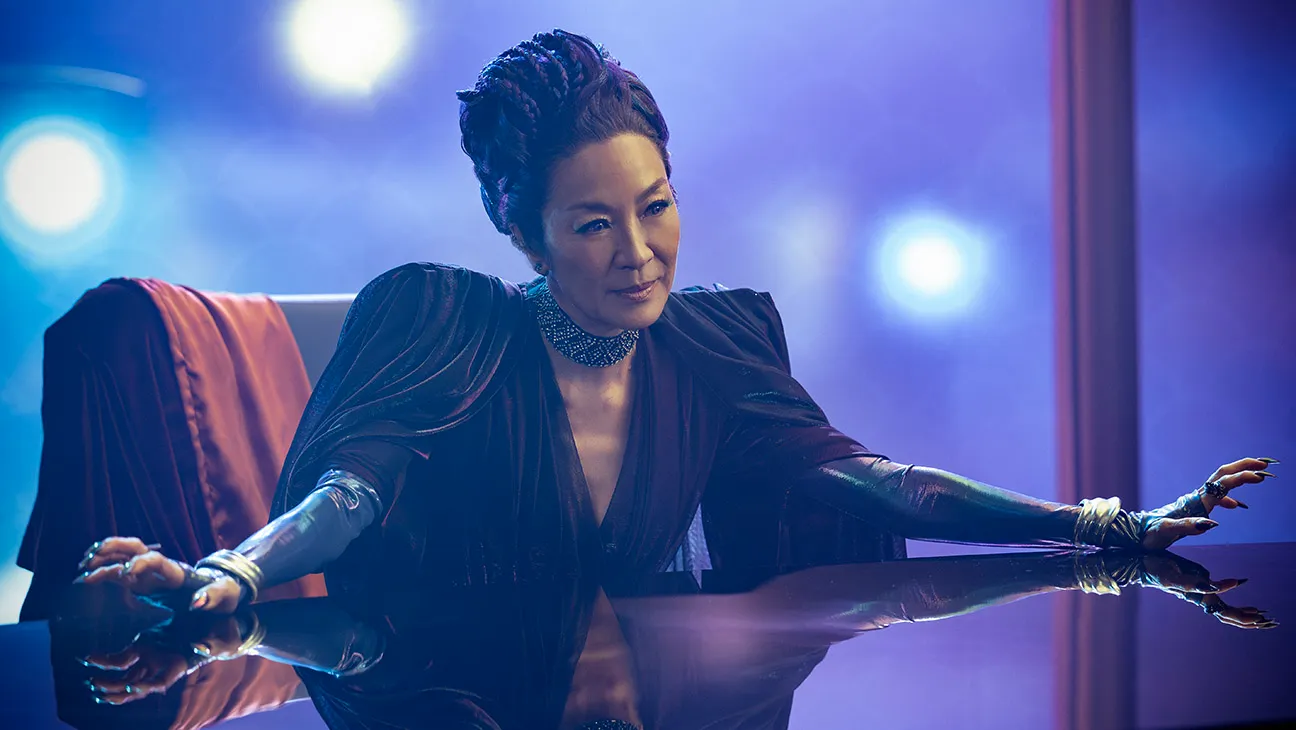The Bob Dylan Cinematic Universe is a-changing. Dozens of films about the legendary singer-songwriter already exist — including two documentaries by Martin Scorsese, the experimental 2007 drama I’m Not There from Todd Haynes (which saw no fewer than six actors take on Dylan’s famous drawl), and the bizarre 2003 drama Masked And Anonymous, in which Dylan played a version of himself and served as co-scribe, writing under the pseudonym ‘Sergei Petrov’.
There have been many, many ballads of this skinny guy. This newest effort comes from James Mangold, the filmmaker whose 2005 Johnny Cash picture Walk The Line prompted the music biopic spoof Walk Hard: The Dewey Cox Story, the standard by which all music biopics must now be measured. To its credit, A Complete Unknown expertly avoids such clichés. (There is no, “That’s when I learned Quaaludes and waterskiing do not mix!” similar line here.)
It is, instead, a plain, clear-eyed musical drama. It opens in 1961 — mirroring the Coen brothers’ Dylan-adjacent Inside Llewyn Davis — with a teenage Bob Dylan (Timothée Chalamet) attempting to pay respect to his hospitalized folk-singing idol Woody Guthrie (Scoot McNairy). Soon he nestles under the wing of veteran folk singer Pete Seeger (Edward Norton) and discovers artistic and/or romantic ties with Joan Baez (Monica Barbaro), Sylvie Russo (Elle Fanning) and Johnny Cash (Boyd Holbrook).

The performances here are the film’s strongest hand. Chalamet is brilliant, rejecting a cartoonish appearance for something genuine and often boyishly arrogant; Norton is charmingly good, a gentle soul who finally finds himself surpassed by his protégé; Fanning and Barbaro give humanistic counterpoints. And if you’re hoping for a best-of-Dylan tribute act, the film delivers in spades. Chalamet’s musical prowess is unimpeachable, his versions regarded upon by many respectful ‘listening faces’, and Mangold makes it play out almost like an immaculately orchestrated jukebox musical — Mamma Mia! for parents, if you prefer.
But as clear and well-mounted as it is, A Complete Unknown plays it safe. Adapted from the book Dylan Goes Electric! by Elijah Wald, it conveys a feeling of inevitability to it: of course it finishes at the Newport Folk Festival in 1965. If you have even a rudimentary familiarity of the Bob Dylan narrative, there will be few surprises here.
Frustratingly, too, for a narrative about a literary genius, it struggles to find something unique to say. There is some intriguing material on the weight of talent: Dylan is prone to furious late-night composing spurts during an unusually prolific creative output, frequently at the sacrifice of his personal relationships or human engagement. (“You’re kind of an asshole, Bob,” comments Joan Baez, rightly.) But by 1965 he is nearly always behind shades, his mystique solidified, a “mysterious minstrel”, as Sylvie puts him. The film doesn’t profess to comprehend Dylan, and indicates Dylan might not understand himself, either. That title, it appears, is literal.
If there’s any performance in A Complete Unknown from a character that certainly wants to claim Dylan and deserves special note, it’s Edward Norton’s pleasant role as Pete Seeger. Seeger has the hard burden of being a trusted friend and mentor to Dylan while being staunchly loyal to the demands of the American folk movement—a movement that Seeger, Newport Folk Festival founder Alan Lomax, and others are certain Dylan symbolizes the future of.

At one point in A Complete Unknown, Fanning’s Sylvie Russo likens her relationship with Dylan to a carnival performer trying to balance numerous spinning plates, where Dylan is the performance and she is only one of the dishes. However, Seeger is the real manifestation of that metaphor, constantly smiling as he attempts to keep the powers that be in the folk world pleased while also working feverishly to keep the more rebellious Dylan in the fold. It’s a Sisyphean attempt bound to fail, but seeing Seeger squirm to keep all those plates spinning—without ever giving in to rage, violence, or sacrificing his own ideals—is extremely fascinating and makes him a character worth pulling for.
Read Also: Highlights from the Blitz (2024) Review
Seeger’s issue gets me to A Complete Unknown’s largest flaw as a dramatic biopic: it’s relatively weak on conflict and fails to communicate the broader stakes for a modern audience, one far away from Dylan’s adolescent era (including my middle-aged self). For instance, why was it so vital to the American folk movement that Dylan remain a completely acoustic vocalist and not “go electric”? What made acoustic folk so holy that electrically amplified instruments couldn’t be used? Why was it regarded so problematic for Dylan to perform as a lead vocalist in a “rock band” rather than as a solo folk performer?
A Complete Unknown never gives solutions to these issues, instead presuming the viewer already knows and understands the split between folk and rock in the 1960s and why it exists. Because of this, I found myself shrugging with disinterest throughout A Complete Unknown’s climax, wondering if what I was seeing was genuinely meaningful. There’s no question that the 1965 Newport Folk Festival event was a historic moment that altered the path of music history, but without being given a real emotional connection to what was at risk—particularly for the folk movement—it felt more like seeing a tempest in a teacup.
As a consequence of Dylan’s tremendous renown, he is never genuinely challenged, his career is never jeopardized, and aside from his lovers, no one ever says “no” to him. This results in a tale that feels shockingly low stakes. Dylan was determined to go his own way anyhow, and if A Complete Unknown is to be believed, there was nothing a collection of stuffy folk singers or dissatisfied fans could have done to convince him otherwise. I simply wish I could have rooted for him as much as I did for Seeger, who had a much bigger—and friendlier—stake in this struggle.






.webp)

.jpg)



